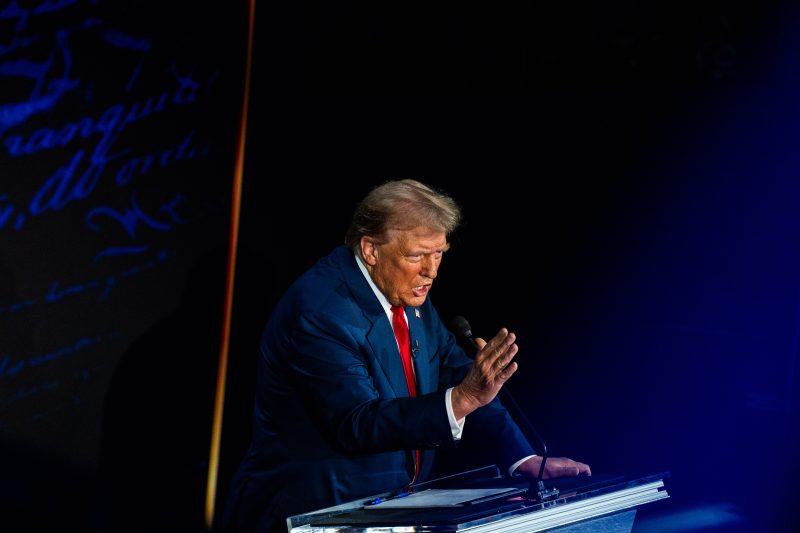In recent years, conspiracy theories have gained significant traction in the political landscape, particularly driven by prominent figures such as former President Donald Trump and the GOP. These theories range from bizarre claims, including eating pets, rigged debates, to the infamous QAnon conspiracy, which purports that a secret cabal of Satan-worshipping pedophiles controls the world. One cannot underestimate the impact of conspiracy theories in shaping public opinion and sowing distrust in democratic institutions.
The feeding frenzy of conspiracy theories, as seen in the example of eating pets, highlights the extent to which misinformation can spread in today’s hyper-connected society. Claims of individuals resorting to eating their pets due to alleged food shortages caused by government actions resonate deeply with individuals already predisposed to distrust the government. Such narratives tap into primal fears and anxieties, fostering further division and skepticism.
The notion of a rigged debate, as promoted by Trump and the GOP, plays into the narrative of a deep state controlling political processes behind the scenes. By casting doubt on the integrity of debates and elections, these conspiracy theories undermine the foundation of democracy itself. This erodes public trust in the electoral process and fuels skepticism about the outcomes of democratic exercises.
Perhaps the most concerning among the conspiracy theories perpetuated by Trump and the GOP is the QAnon conspiracy, which has attracted a significant following and poses a real threat to democratic norms. The narrative of a shadowy group conspiring against the president and engaging in heinous acts has led to real-world consequences, including acts of violence and domestic terrorism. The proliferation of such extreme and baseless theories underscores the need for vigilance against misinformation and the promotion of critical thinking skills in society.
Despite the absurdity of some conspiracy theories, their allure lies in offering simplistic explanations to complex phenomena and providing a sense of empowerment to believers. In a world marked by uncertainty and rapid change, people may find comfort in narratives that promise hidden truths and secret knowledge. The challenge lies in combating the spread of misinformation while fostering a culture of open dialogue and evidence-based reasoning.
It is essential for individuals to critically evaluate information presented to them and seek out reliable sources to verify claims. By promoting media literacy and encouraging a healthy skepticism towards outlandish theories, we can help inoculate society against the harmful effects of conspiracy thinking. The responsibility also falls on political leaders and media outlets to refrain from promoting baseless claims and instead focus on fostering a culture of transparency and accountability.
In conclusion, the proliferation of conspiracy theories, fueled by prominent figures like Trump and the GOP, poses a significant threat to public trust in democratic institutions and societal cohesion. By recognizing the dangers of misinformation and promoting critical thinking skills, we can work towards a more informed and resilient society that is able to discern fact from fiction in an increasingly complex world.

